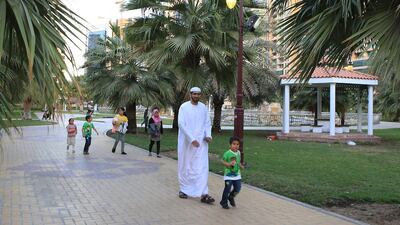A recent editorial on maternity leave highlighted the limited provision for new mothers in UAE employment law. Certainly there is a long way to go before the UAE can reach the standards of developed economies in Europe. Even the United States, which is typically criticised for its lack of statutory leave for new mothers offers up to 12 weeks, although much of that is without pay.
The issue of maternity leave is central to a woman’s ability to balance the pursuit of a career with motherly aspirations. Legal provisions for maternity leave protect a working woman and ensure her rights before the law, but they can lead to unintended and undesirable consequences.
Speaking with HR and recruitment specialists, there already exists a bias against hiring women of childbearing age who are recently married. The perception among employers is that a young woman, recently married, is likely to fall pregnant in the near future and be unable to fulfil the obligations of the job for which she has been hired. Despite the clear, significant and verifiable contribution that women make to the workplace, old prejudices still exist.
Any increase in maternity leave that brings the UAE closer to the norms of developed economies is of ultimate benefit to women currently employed, but may act as a barrier to the hiring of younger women entering the workforce. These new jobseekers are at risk of the potential prejudice and fear of an employer who might view their addition to the company as a financial risk if extensive maternity cover is needed.
A more powerful change relating to parental responsibilities would take place in the UAE workplace if statutory paternity leave were introduced on the same conditions as maternity leave. Paternity leave is leave given to the father following the birth of a child – basically the father’s equivalent to maternity leave. When I discuss this concept with my human resources management students at UAE University, the initial reaction is one of laughter, especially from the women – many of whom are already mothers.
Their discussions on the relative usefulness of the stereotypical father in the early weeks and months of child rearing are generally comical and or derisory. But once the discussion moves away from humour and initial scepticism and we begin discussing the larger implication for society and the UAE workplace, more serious implications become evident.
Disparity in workplace benefits between any groups in the labour market has the potential to create barriers to employment and reinforce labour market segmentation between those groups. We see this already in the UAE in relation to workforce nationalisation/ Emiratisation initiatives. Research on the issue has indicated that if private companies perceive the potential for additional costs in the recruitment of Emiratis over non-nationals, this can act as a barrier to hiring.
The same logic and rationale can be applied to the perception of added costs in hiring a woman and potential new mother. Despite the social and ethical obligations an employer has to promoting fairness at work, women have had to fight against discrimination in the workplace for generations and continue to do so.
The most direct way to empower women in the workplace is to remove any sources of bias or prejudice that might exist in hiring them. If men were to receive the same (or largely similar) benefits and conditions including parental leave then the perceived added “cost” of hiring women and potential mothers disappears.
Certainly the traditional role of women in the UAE as primary caregivers and homemakers is not at odds with the introduction of paternity leave. Rather paternity leave would serve to enhance the role of both parents in the early years of child-rearing and may have significant positive effects on the family unit and wider society.
Research on the benefits of paternity leave in other countries does not suggest any negative economic impact, as is often argued by business lobby groups. In addition, research also suggests that paternity leave strengthens the relationship between fathers and children and increase a father’s continued involvement with his children in later years. There is even some evidence of improved cognitive skills in children as a result of increased fatherly involvement thanks to paternity leave.
With little potential risks associated with the introduction of dual parental leave and many potential benefits, perhaps the time for serious discussion on paternity leave in the UAE has finally arrived.
James Ryan is an associate professor of human resource management and organisational behaviour at UAE University

